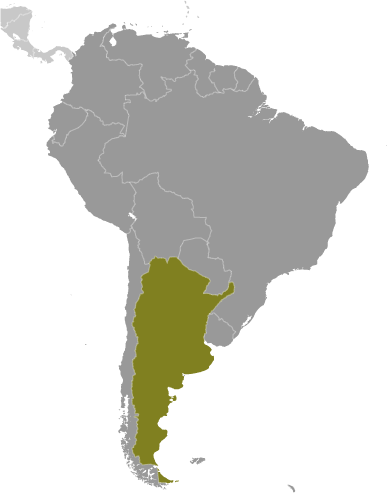HISTORICAL BACKGROUND
The
Argentine Constitution does not include a general right of access to public documents or information.
(1) Article 43(3) recognizes a right of individuals to access and correct their own records held by public or private bodies. Also Article 41(2) obliges authorities to provide information on the environment. Many courts have recognized and stressed the importance of this right.
(2) The courts have also recognized a number of cases under Article 13 of the American Convention on Human Rights.
(3)
The
Access to Public Information Regulation was introduced by President Néstor Kirchner in 2003.
(4) It applies to any agency, entity, organism or company established under the jurisdiction of the Executive Power. The Regulation applies also to companies that have received funds from the government. Information is defined as any document, recording, photograph, either in paper or magnetic media, created or obtained by any of the persons or entities that must comply with the Regulation or under its control, or created with government funds, or if it is going to be used in an official decision including official meetings. If the information does not exist, the requested agency has no duty to create it or compile it, unless there is a legal obligation for the State to create it.
The Regulation established a presumption of publicity of all documents held by the subjects regulated by it. Access to documents is free of charge, unless reproduction is necessary. In that case the claimant must pay the price of requested copies. Any person, individual or company, is entitled to request and access public information without any requisite of standing, subjective right or representation by an attorney. Agencies have ten days to answer an access request.
There are exemptions for documents and information affecting national defence, foreign policy, trade secrets, legal advice of government counsel, privacy and intimacy and sensitive data under the Data Protection Act, and information that may risk someone else's life.
There is a right of internal appeal under the Administrative Procedure Act. Under this Act any person who requested access and did not received the information can file an administrative appeal to a higher authority. However, the administrative appeal is not mandatory so any party can choose to continue the appeal internally or file a claim in the administrative court. No cases have been filed under the Regulation.
Government agencies that hold public information must organize an index of the information in order to facilitate access. Public information must be provided without any other qualification, except those provided in the Regulation Decree. The government must also generate, update and provide basic information with the aim of guiding the citizenship in its access to information. There is no provision requiring the government to provide the structure and activities or organisation of any agency. The government created a web site with a list and access to the web sites of the state agencies
(5), and the Presidency maintains a web site
(6) with information about the meetings that public officials have every day and description of all the agencies. The Cristal web site
(7) also publishes budget information, lists of employees, and economic resources already or about to be spent by the government on the Internet as required by section 8 of Law 25.152.
(8)
The decree is generally considered good but there are continuing problems with implementation and creating a culture of transparency. A monitoring report conducted by the Association of Civil Rights (ADC) and the Open Justice Initiative found that of 140 information requests, 40 percent were not answered, 17 percent provided significant information, 14 percent had their request transferred and 8 percent received an oral refusal.
(9) There are no published court cases. The decree has two major problems. First, it is a decree, so it can be amended at any moment by the Executive Power. Second, a decree of the Executive Power cannot create access obligations on the Legislative Power, the judicial power and other independent bodies of government (like the Ministerio Público or the Ombudsman). Thus, there is a need for an FOI law that covers all the government.
In March 2002, the Executive introduced the FOI bill in Congress. Although some bills have been introduced before, this bill was the first elaborated by the Executive Power with support of NGOs and academics. It was approved by the House of Representatives in May 2003 and was sent to the Senate. In the Senate, the bill was significantly amended and it was returned to the House in December 2004 where it languished. The Senate bill was widely criticized because it imposed requirements for access such as requiring the disclosing of the motive of the request. Civil society groups are now reorganising to make a push for a bill in the next Congress.
The
Law Establishing Access to Environmental Information was adopted in November 2003.
(10) It guarantees the right to access environmental information in the hands of the national, provincial or municipal state and the city of Buenos Aires, as well as autonomous entities and public utilities. Access to environmental information is free for any individual person or entity, except for the cost of providing the information. A showing of a special interest is not required. Access to environmental information can be denied if disclosure can affect national defence, foreign relations, trade secrets or intellectual property; works of research that have not been published; and information classified as secret or confidential by laws and regulations. Denial of access by an agency must be reasonable. Once a request is lodged, an agency has 30 days to provide the requested information.
On the provincial level a number of jurisdictions have enacted FOI laws or regulations (by decrees of the governor) during the last 5 years.
(11) There are FOI bills pending in the provinces of Neuquen, La Pampa, Mendoza, Santa Fe, Chaco, Tucuman and Catamarca.
The Personal Data Protection Act allows for individuals to access their own personal information held by public and private bodies.
(12) It is enforced by the National Directorate for Personal Data Protection.
(13) The Act was adopted after the Supreme Court in the case "Ganora"
(14) held that the intelligence agencies cannot deny access without a reasonable explanation. Under Article 17 of the Act, the data controller can deny access to the file for reasons of national defense. Scholarly commentary to the case points out that Article 17 considers that individuals can use habeas data to access to their personal information in such cases and that the exception should be limited.
(15) Even after "Ganora" was decided, the Secretary of Intelligence usually denies access to its databases invoking Article 17 of the Data Protection Act and Articles 2 and 16 of the Intelligence law.
Article 16 of the Intelligence Law provides that access to the information from any intelligence source shall be authorized by the President or the public officer to whom he may delegate such authority.
(16) The President delegated this authority to the Secretary of Intelligence. However, access to classified information is always denied.
NOTES
Constitution of the Argentine Nation,
http://www.biblioteca.jus.gov.ar/Argentina-Constitution.pdf
Corte Suprema, "Urteaga, Facundo R. C. Estado Nacional - Estado Mayor Conjunto de las FF.AA. - s/amparo, ley nº 16.986" sentencia del 15/10/98 (LA LÑEY, 1998 - F, 237. Administrative Court of Appeals, sala 1ª, "Fundación Accionar Preservación Ambiente Sustentable c/ Comité Ejecutor Plan GayM Cuenca Matanza-Riachuelo y otro s/ amparo", del 16/4/2002, LL 2003-A-254: Right to access to environmental information, although not mentioned in the Constitution, is a fundamental right. Plaintiff has right to access to information about the environment but case was declared moot because information was timely provided.
Sofia Tiscorna & CELS v. Estado Nacional (E.D. 180-426 -1998-): FOI lawsuit invoking section 13 of the ACHR and requesting access to information held by the police during the military regime; CNCont. Adm, Sala 5, 25/3/02, "Monner Sans c/Fuerza Aerea Argentina s/amparo": Recognized right of an individual to access information about the situation of civil airplanes and examinations performed by the Argentine Air Force related to their security. The Court found he had standing to request the information because he was a passenger of airplanes; Poder Ciudadano v. National Senate (November 29, 2004, Administrative Court of Appeals): Compels the Senate to provide the plaintiff list containing number of employees hired at the Senate, salaries, and other administrative information; CNCont Adm, Sala 3, "C.P.A.C.F. c/E.N.": Recognized right of the Public Bar Association to access information contained in public files.
Decree 1172 on Access to Public Information.
http://www.cristal.gov.ar/
http://www.mejordemocracia.gov.ar/ (Better democracy)
http://www.cristal.gov.ar/sitio/servicios/transparencia.htm
Law on Fiscal Transparency.
See ADC,
2004 Access to Information Monitoring Report - Argentina.
Law 25.831. 26 November 2003.
City of Buenos Aires: Law 104.; Buenos Aires: Law 12.475/2000 on Access to information; Entre Rios: Decree 1169/2005; Cordoba: Law 8803/1999; Santiago del Estero: Law 6753/2005; Misiones Decree 929/2000; Salta: Decree 1574/2002; Jujuy: Law 444/1999 and Decree 7930/2003; Rio Negro: Law 1829/84 and Decree 1028/2004; Chubut: Law 3764/92; Mendoza.
Personal Data Protection Act.
http://www.protecciondedatos.com.ar/law25326.htm
Homepage:
http://www2.jus.gov.ar/dnpdp/index.html
Fallos 322:2139.
See Sagues, Nestor, Derecho Procesal Constitucional,. Acción de amparo, tomo 3, at. 682, 5 edición, Buenos Aires, 1995; Dalla Via, Alberto y Basterra, Marcela, Habeas Data y otras garantías constitucionales, Ed Nemeses, at 130, Quilmes, 1999; Ekmedkjian, Miguel y Pizzolo (h), Calogero, Habeas Data, Depalma, at 99; Gallardo María y Omledo Karina, Habeas Data, LL 1998-A-977; SAGÜÉS, Néstor P., "El hábeas data contra organismos estatales de seguridad", LL 2000-A, 352.
Ley de Inteligencia Nacional no 25,520.





















